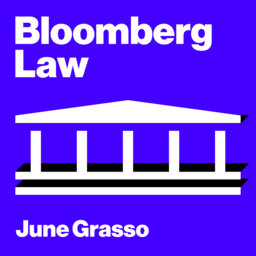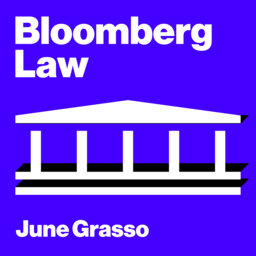Trump Wants Absolute Immunity
Former federal prosecutor Jessica Roth, a professor at Cardozo Law School, discusses Donald Trump’s claim that he is entitled to presidential immunity in the case charging him with trying to overturn the 2020 election. Bloomberg legal reporter Ava Benny-Morrison discusses the beginning of the testimony of the state’s star witness against Sam Bankman-Fried. Bloomberg law reporter Dan Papscun discusses the legal “hot tub.” June Grasso hosts.
 Bloomberg Law
Bloomberg Law


